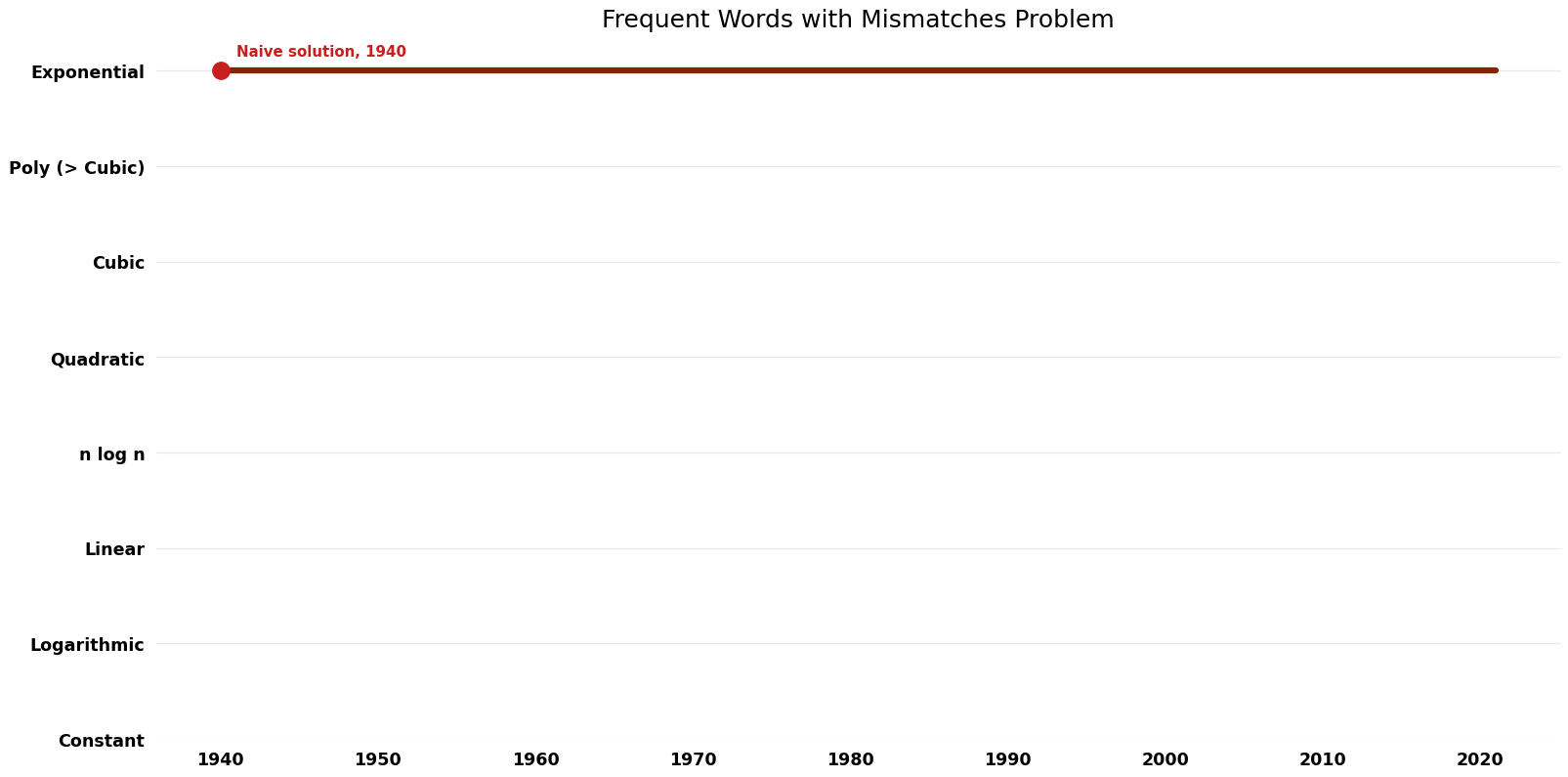Frequent Words with Mismatches Problem: Difference between revisions
Jump to navigation
Jump to search
No edit summary |
No edit summary |
||
| (One intermediate revision by the same user not shown) | |||
| Line 6: | Line 6: | ||
== Parameters == | == Parameters == | ||
n: length of string | $n$: length of string | ||
k: length of words | $k$: length of words | ||
d: number of allowed mismatches | $d$: number of allowed mismatches | ||
sigma: size of alphabet | $\sigma$: size of alphabet | ||
== Table of Algorithms == | == Table of Algorithms == | ||
| Line 29: | Line 29: | ||
[[File:Frequent Words with Mismatches Problem - Time.png|1000px]] | [[File:Frequent Words with Mismatches Problem - Time.png|1000px]] | ||
Latest revision as of 10:12, 28 April 2023
Description
Given two strings, determine the most frequent substring with at most $k$ mismatches, where mismatches are not counted towards the length of the substring.
Parameters
$n$: length of string
$k$: length of words
$d$: number of allowed mismatches
$\sigma$: size of alphabet
Table of Algorithms
| Name | Year | Time | Space | Approximation Factor | Model | Reference |
|---|---|---|---|---|---|---|
| Naive solution | 1940 | $O(n*f_{bin}(sigma-{1}, k, d)$) where f_{bin}(x, y, z) = sum_{i=0}^z C(y, i)*x^i | $O(max(n*f_{bin}(sigma-{1}, k, d)$, sigma^k)) auxiliary where f_{bin}(x, y, z) = sum_{i=0}^z C(y, i)*x^i | Exact | Deterministic |
